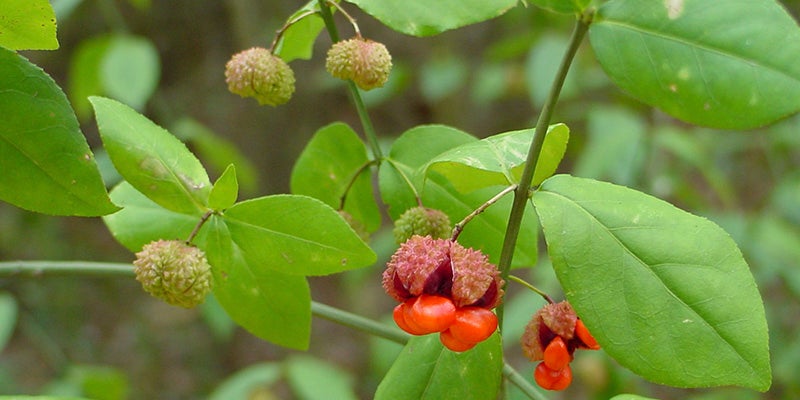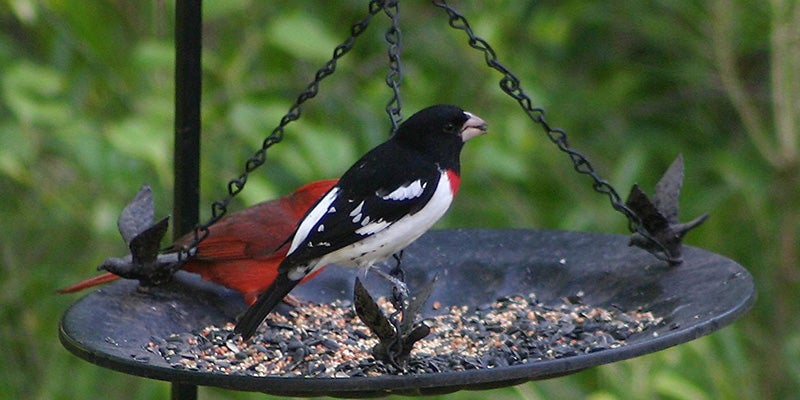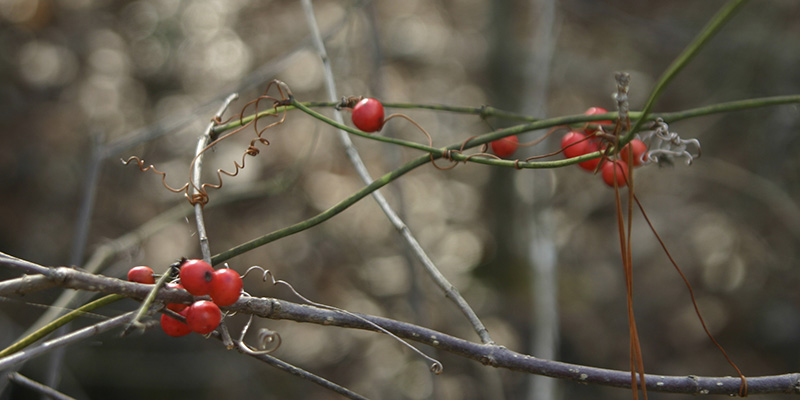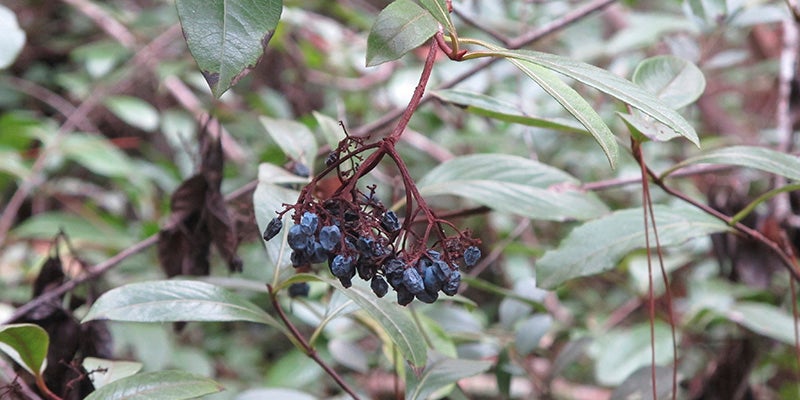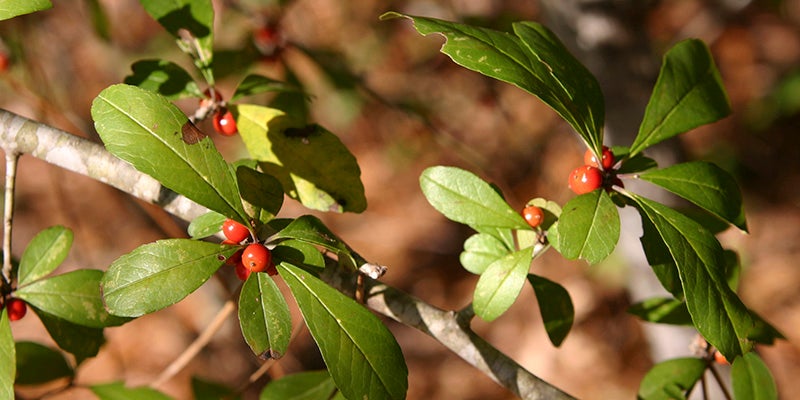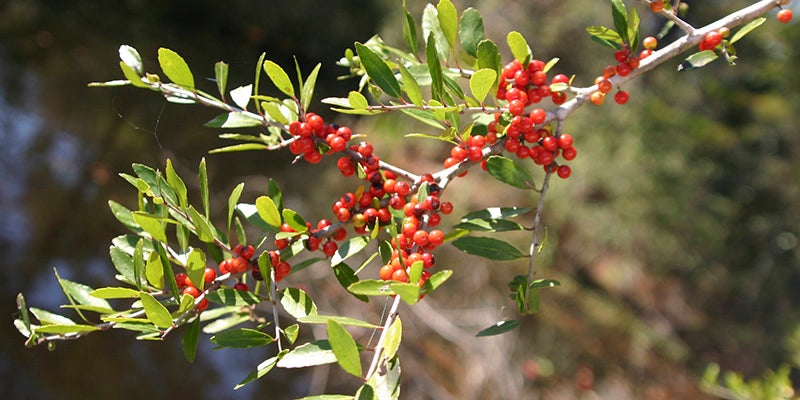Bring on the berries: Outstanding native shrubs for your wildlife garden
Published 7:00 am Wednesday, November 4, 2020
By Pat Drackett
Arboretum Director
As fall edges closer to winter, more and more shrubs are developing their brightly colored crops of berries and fruit that will soon to be enticing birds and other wildlife. Do you enjoy feeding and watching birds? Include some dependable and low-maintenance Mississippi native plants, in particular fruiting shrubs, in your landscape to attract them. This is one smart decision for your garden planning that will ensure that your feathery visitors will delight you with their activity outside your window this winter.
So, do make sure to locate your shrubs where you can see them from inside!
Hollies make excellent choices for the wildlife garden. The Latin genus name for hollies is “Ilex,” and the Arboretum contains many varieties, ranging from common species such as the Yaupon Holly (Ilex vomitoria) and Gallberry Holly (Ilex glabra), to less commonly seen species such as American Holly (Ilex opaca) or Possumhaw Holly (Ilex decidua).
Possumhaw Holly is deciduous, meaning, it loses its leaves in winter. Because of this, its bright berries will stand out in stark contrast against the neutral tones of a winter landscape.
Yaupon Holly is sometimes mistaken for the highly invasive Chinese Privet (Ligustrum sinense). Can you tell these two shrubs apart? Knowing the difference might be handy if you are questioning what to leave and what to prune from a native hedgerow. Hint: Yaupon has very stiff branches and privet limbs are much softer.
Yaupon hollies are currently festooned in gorgeous red berries. This also makes it easily distinguished from privet, which has dark purple-black fruit. Many species of birds will consume yaupon berries, including mockingbirds, American robins, bluebirds, yellow-bellied sapsuckers,and cedar waxwings. However, it will take a number of freezes and thaws to make the berries palatable.
Southern wax myrtle (Morella cerifera) is a high-performing evergreen shrub that grows in both wet and dry conditions. It will tolerate compacted soils, salt spray and flooding. Its seeds are dispersed by birds, and around fifty species are known to consume the berries, particularly wild turkey and bobwhite quail. The birds’ digestive systems remove the wax from wax myrtle fruit, which is necessary for seed germination.
Young wax myrtles tend to pop up unexpectedly in many places and are easily transplanted, so be on the lookout for free plants! This shrub can be pruned to encourage a denser growth making it a great shrub to use for creating an evergreen screen along your property line. It can also provide excellent cover for nesting birds.
Other great shrubs found in Pearl River County and at the Arboretum’s exhibits that will provide winter food for wildlife include American beautyberry, red chokeberry, Viburnums such as arrow-wood (V. dentatum) and possumhaw (V. nudum) greenbriar (Smilax) and poison ivy.
Yes, those last two plants might not be very appealing to humans, but they are useful to birds and other wildlife as they offer both a food source and protection from predators.
Visit the MSU Extension website at http://extension.msstate.edu/ and enter “Establishing a Backyard Wildlife Habitat” (Publication 2402) to read more about attracting birds and other wildlife to your yard. Also, pages 60 through 66 of “Selecting Landscape Plants” (Publication 0666) deal specifically with landscape plants that will attract birds and wildlife.
We still have a selection of native trees, shrubs and perennials remaining from the Arboretum’s fall plant sale. Many of these are located on our Visitor Center deck. Also remaining are a number of high-performing, reliable native trees such as Southern and sweetbay magnolias, bald and pond cypress, tupelo and live oak.
A family craft workshop, “Painting Fairy Doors and Rocks,” will be held Saturday, November 7, from 10:00 to 11:00 a.m. Paint a fairy door for your home garden along with fairy doors and themes on rocks that will be hidden along our pathways to search out on your future visits. Limited to 12 persons, registration is required. As children must be accompanied by an adult, there is no minimum age requirement. Cost: $6 for members (adults and children), and $9 for non-members (adults and children). A Fall Botany Field Walk is offered that afternoon from 1:00 to 2:00 p.m. Tour plants in the Arboretum exhibits and learn how to use them in your landscape with Director Pat Drackett. Reservations are requested.
Members free; non-members $5. Call 601-799-2311 to sign up for programs.
For more information, please call 601-799-2311. We’re open Wednesday through Sunday and located in Picayune, I-59 Exit 4, at 370 Ridge Road. Exit gates are closed at 4:30 p.m. The business office is open 9 a.m. to 5 p.m.


